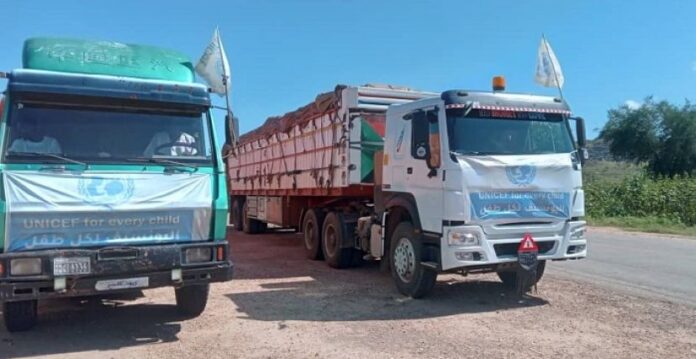The United Nations Office for the Coordination of Humanitarian Affairs (OCHA) reported that intense fighting across Sudan during February 2025 has exacerbated the already dire humanitarian situation.
The UN stated that an organization affiliated with the Rapid Support Forces (RSF) imposed strict restrictions on humanitarian operations in areas under RSF control.
In a humanitarian update on Thursday, March 13, 2025, OCHA said that ongoing fighting between the army and RSF, bureaucratic impediments, and travel restrictions are hampering partners’ ability to reach affected populations.
The UN office noted that some humanitarian partners suspended operations in Zamzam camp due to armed activity on access roads and the ongoing siege of El Fasher.
OCHA explained that an RSF-affiliated agency imposed restrictions on travel for humanitarian organizations that had not signed a cooperation agreement. These restrictions caused significant delays in delivering essential life-saving supplies in Darfur.
It added: “Despite claims of lifting restrictions until April 2025, the RSF-affiliated organization continues to interfere with humanitarian operations, preventing supplies from reaching areas outside RSF control and imposing armed escorts. Dealing with this organization is becoming increasingly difficult, further shrinking humanitarian space in RSF-controlled areas.”
OCHA indicated that operational interference by state authorities in Gedaref and Kassala states has restricted humanitarian operations.
According to OCHA, reported interference included exorbitant financial demands for recruitment fees, increasing the financial burden on partners, delays in signing technical agreements, denial of travel permits, unclear engagement plans, and interference in prioritization and targeting of beneficiaries, all contributing to a slow response.
The humanitarian office reported that Sudanese authorities approved 66 visa applications out of 113 reported requests, while rejecting ten reported applications submitted by international NGOs.
It continued: “68% of unapproved applications remained pending for over four weeks, and multiple-entry visa requests, including for senior staff, were rejected despite receiving single-entry approvals.”
The UN office said two UN agencies reported 20 pending requests from Sudanese authorities, including 10 pending for over a month.
According to OCHA, the number of single-entry visas granted monthly represents about half of the visas applied for, causing a significant backlog in applications and making it difficult for organizations to scale up operations and rotate staff.
It added: “With access to the two main bridges connecting Zalingei to El Geneina and Adre impossible, there are concerns about the isolation of many areas in Darfur during the upcoming rainy season. Access to Central and South Darfur will only be possible through long movements across frontlines or alternative solutions for crossing flooded wadis.”
At the same time, OCHA confirmed in its update on the humanitarian situation in Sudan that Sudanese authorities extended the use of the Adre crossing for another three months starting February 16, 2025, along with improved access to Khartoum and Wad Madani after reopening previously closed roads and a decrease in hostilities


